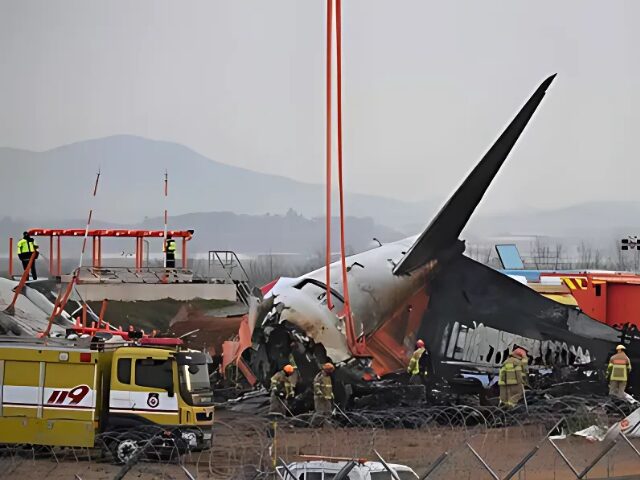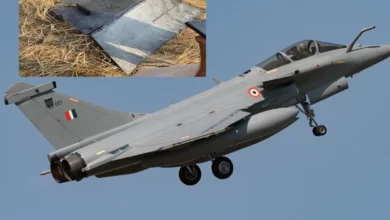Jeju Air faced two serious incidents involving its Boeing 737-800 planes within two days, raising concerns over aviation safety.
On Monday, a Jeju Air Boeing 737-800 departing from Seoul’s Gimpo Airport encountered a landing gear issue shortly after takeoff.
The flight, heading to Jeju, returned to Gimpo and landed safely at 7:25 a.m., according to South Korean news agency Yonhap, as reported by Reuters. The airline stated that all 161 passengers onboard were informed of the mechanical defect and were unharmed.
This incident occurred less than 24 hours after a tragic accident involving another Jeju Air Boeing 737-800 at Muan International Airport.
The flight, returning from Bangkok, Thailand, experienced a landing gear malfunction during an attempted landing.
The aircraft skidded off the runway, hit the perimeter wall, and caught fire, resulting in the deaths of 179 passengers out of 181 onboard. Officials attributed the malfunction to a possible bird strike, but an inquiry is ongoing to determine additional factors, including weather conditions.
Jeju Air CEO Kim E-bae apologized for the Muan disaster during a press conference, taking full responsibility. “Regardless of the cause, I take full responsibility as the CEO,” Kim stated, bowing deeply before the nation.
Jeju Air, a low-cost carrier established in 2005, operates 41 planes, 39 of which are Boeing 737-800 models. The airline had maintained a reputation for safety, with no prior accidents involving its fleet.
Authorities have launched investigations into both incidents, focusing on mechanical integrity, bird strike risks, and operational protocols. Jeju Air confirmed that the aircraft involved in the Muan crash had been in operation for 15 years without prior malfunctions.
“We are currently working to determine the exact cause and details of the situation,” a Jeju Air spokesperson said.







